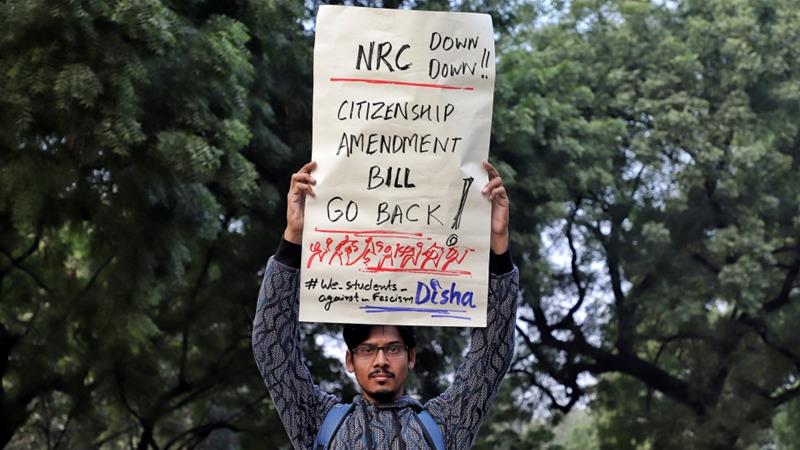What you should know about India’s ‘anti-Muslim’ citizenship bill

The ruling Hindu nationalist government pushes for bill, which opposition says violates India’s secular constitution.

The ruling Hindu nationalist government pushes for bill, which opposition says violates India’s secular constitution.
India‘s lower House of Parliament (Lok Sabha) has passed the controversial Citizenship Amendment Bill (CAB), which will grant citizenship to religious minorities from neighbouring countries, with legal experts saying it violates the country’s secular constitution.
The bill, which seeks to amend the 1955 citizenship law, aims to give citizenship to “persecuted” minorities – Hindus, Sikhs, Buddhists, Jains, Parsis and Christians – from Bangladesh, Afghanistan and Pakistan, but excludes Muslims.
After being approved 311-80 by the lower chamber on Monday, the bill will now go to the upper House, where the ruling Hindu nationalist Bharatiya Janata Party (BJP) lacks a majority.
Opposition parties say the bill is discriminatory as it singles out Muslims in an officially secular nation of 1.3 billion people. Muslims form nearly 15 percent of the population.